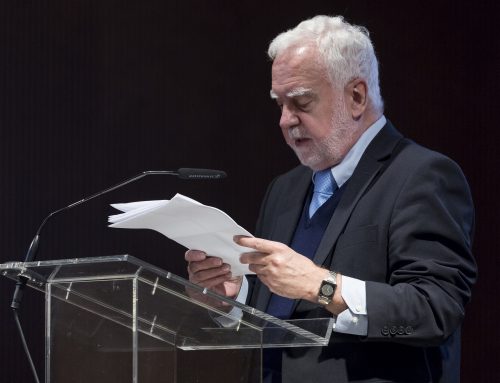September 2011 Volume 36, Number 9
The Ventilator as Excessive Burden
In the June issue of Ethics & Medics, Edward Furton states that food and water provided by artificial means is a form of ordinary care and usually obligatory, while the provision of oxygen through ventilatory support is usually not: “Often, ventilatory support can be set aside as a measure of extraordinary means.” 1 He describes tube feedings as providing food and water which the body readily assimilates on its own, and he notes that the tube does not take over any function of the body. This is in contrast to the mechanical ventilator, which potentially takes over two functions: oxygenation and ventilation.
Furton correctly points out that it is not enough to deliver oxygen to the lung as a feeding tube delivers food and water to the alimentary tract. The ventilator also replaces the ventilatory function, that is, it moves air into and out of the lung. He contends that the replacement of a bodily function provides us with the basis for calling a ventilator an extraordinary form of treatment, especially when there are no reasonable prospects for weaning.
I would like to comment on the semantics of this discussion and emphasize that it is the difference in the burden of care, rather than whether a therapy is considered a replacement, that provides the proper ethical grounds for withdrawal.
Necessities and Burdens
Oxygen, food, and water qualify as physical necessities. Oxygen-enriched air via a nasal cannula or mask is a light-burden intervention, as is a nasogastric feeding tube. Oxygen provided by a ventilator represents a much greater burden of care. This is because of the physical discomfort of the endotracheal tube going from the mouth, traversing the oropharynx, crossing the larynx, and reaching the trachea. Sedation, analgesics, and physical restraints are often necessary. The patient cannot talk while ventilator support is in use. The ventilator exposes the patient to greater risks of infection and barotrauma. Even an untrained observer will recognize that the burden imposed by a ventilator with a standard endotracheal tube is much greater than the burden of a feeding tube.
Furton’s description of the feeding tube as not “taking over any function of the body” 2 is correct if one is just considering the digestive properties of the lower alimentary tract. In my view, however, the feeding tube is taking over the swallowing function of the upper alimentary tract. The fact that a ventilator takes over two functions (oxygenation and ventilation) and the feeding tube takes over just one does not in and of itself provide an appropriate basis for an ethical distinction between these two withdrawal decisions.
Also, Furton’s use of the term “replacement” in describing the role of a ventilator may be problematic.3 For the vast majority of patients who receive ventilator support, the machine is just assisting, or supporting, the person’s intrinsic ventilatory abilities. After all, we use the term “ventilator support” not “lung replacement.” If anything, it is the feeding tube that is more completely substituting for the swallowing mechanism.
In a recent article, Daniel Sulmasy, MD, gives us a lexicon of these issues that moves us forward.4 He uses the term “replacement” for a therapy that not only takes over a bodily function but also participates in the organic unity of the patient as an organism. A replacement becomes part of the patient, for example, in a kidney transplant. Sulmasy uses a closely related term, “substitutive therapy,” to describe a therapy that substitutes for a pathologically disordered function without it completely replacing that function. An example would be dialysis that substitutes for the kidneys. The distinction between replacement therapies and substitutive therapies is not always crystal clear and can involve considerations of whether a therapy is integrated into the body, whether it can respond to changes in the organism or the environment, whether it relies on external power sources, whether it can grow and repair itself, and whether it is immunologically compatible. Under the proper circumstances, most substitutive therapies can be withdrawn. Withdrawing a replacement therapy, in Dr. Sulmasy’s use of the term, requires more careful scrutiny.
Cause of Death Semantics
We seem to cringe (and rightly so) at the thought of someone dying the slow death of dehydration and starvation for solely the lack of a feeding tube. Indeed, it will be a select group of patients who cannot tolerate the light burden of today’s soft, flexible, and small-caliber feeding tubes. When tube feeding is effective and beneficial, death from dehydration and starvation is morally problematic because of the light burden of the feeding tube.
There is a larger group of tube-fed patients whose death is imminent from comorbid diseases. By contrast, these deaths are independent of whether or not tube feedings are continued. In patients such as these, it will be obvious that the benefits of the tube feedings have waned compared with even the small burden of the feeding tube. Under the proper circumstances, withdrawal of tube feeding may be licit.
Even if the basic necessities provided by tube feedings and ventilators (food/water and oxygen) are similar, the cringe factor does not seem as bad when we withdraw a ventilator. Perhaps it is the cause-of-death terminology of dehydration and starvation that influences our moral calculus. We could, however, level the verbal playing field by using terms like asphyxiation or suffocation to describe the results of ventilator withdrawal. The point is that either type of withdrawal can lead to pain and suffering if proper palliation is not provided. Therefore, neither the potential for pain and suffering nor the rapidity with which death ensues can provide us with an appropriate ethical distinction between withdrawing these two types of therapy. I submit that the key factor is the simple difference in the burdens associated with the two treatments. This is what provides us with the ethical criterion for determining what is ordinary and extraordinary means or, more precisely, proportionate and disproportionate treatment.
There are difficulties in choosing precise terminology to describe medical interventions. It may be risky to state broadly that replacement therapies can generally be withdrawn. Given the range of technologies at our disposal, even if we can arrive at a consensus on the meanings of terms like “replacement” or “substitutive” or “supportive,” each situation will require individual analysis. After going through all these semantic contortions, I come back to the simple recognition that it remains an individual burden-versus-benefit decision.
Stephen E. Hannan, MD
Dr. Hannan practices pulmonary and critical care medicine at the Health Park Medical Center in Fort Myers, Florida.
1 Edward J. Furton, “Ventilators versus Food and Water,” Ethics & Medics 36.6 (June 2011): 3.
2 Ibid., 4.
3 Ibid.
4 Daniel P. Sulmasy, “Within You/without You: Biotechnology, Ontology, and Ethics,” Journal of General Internal Medicine 23.Supplement 1 (January 2008): 69–72.







